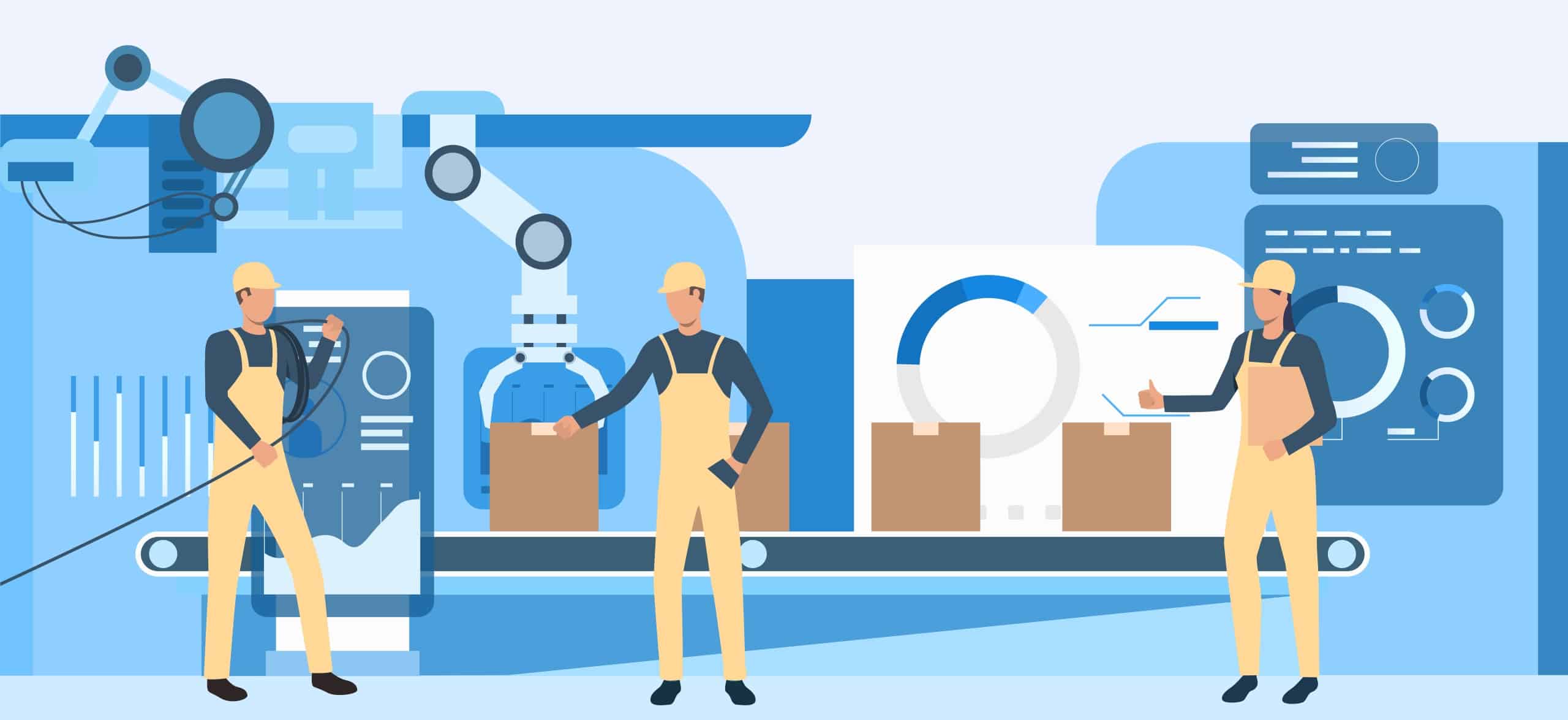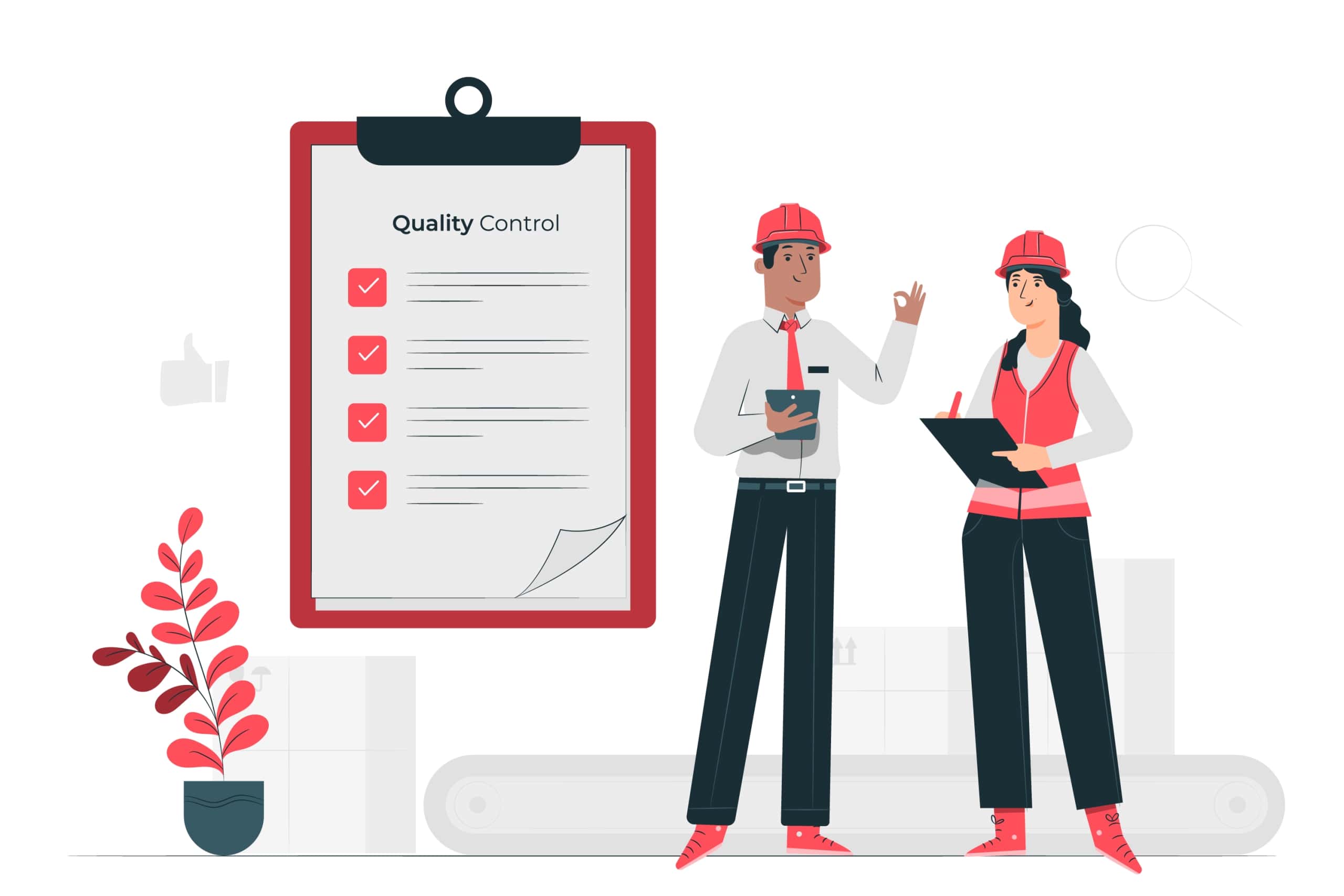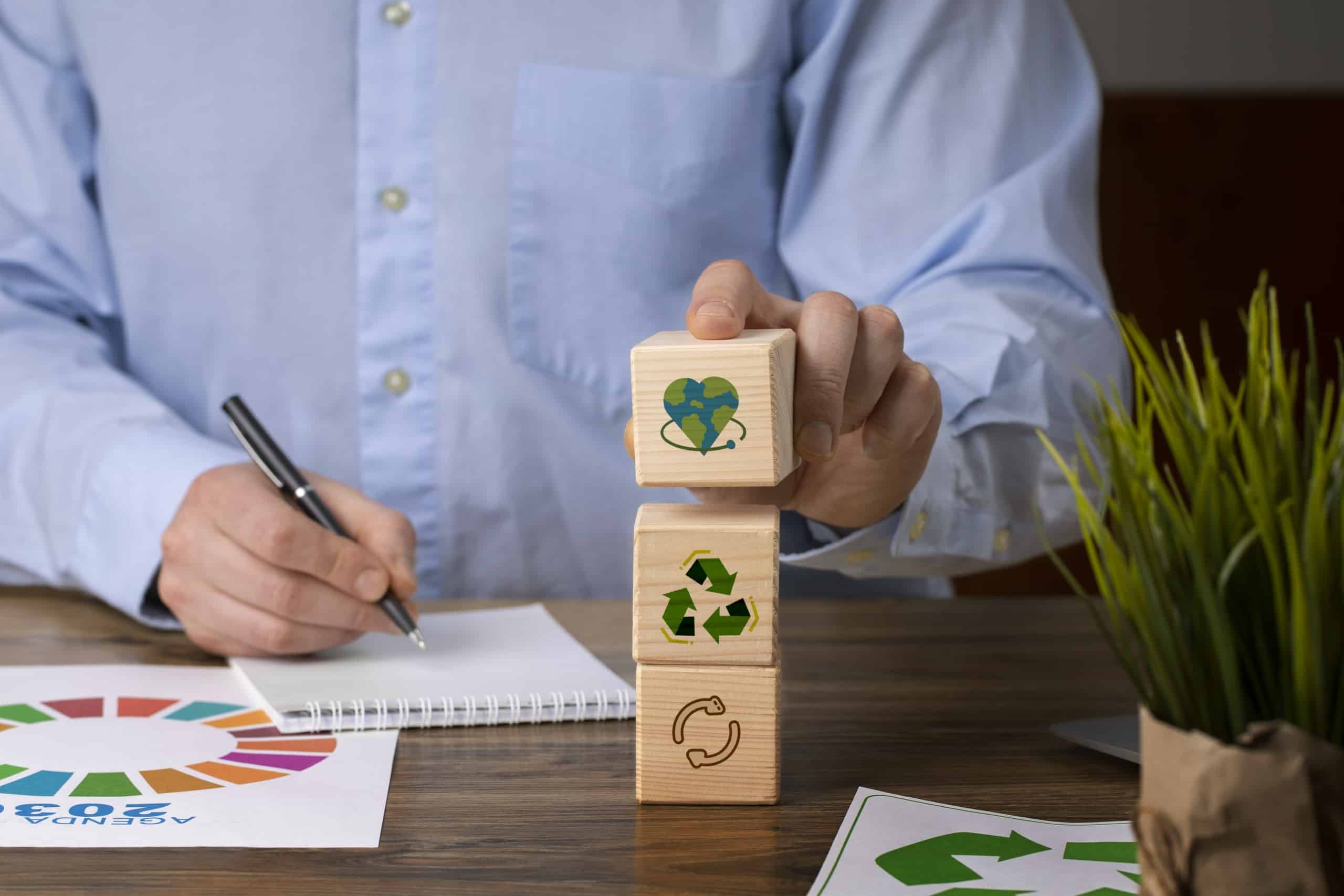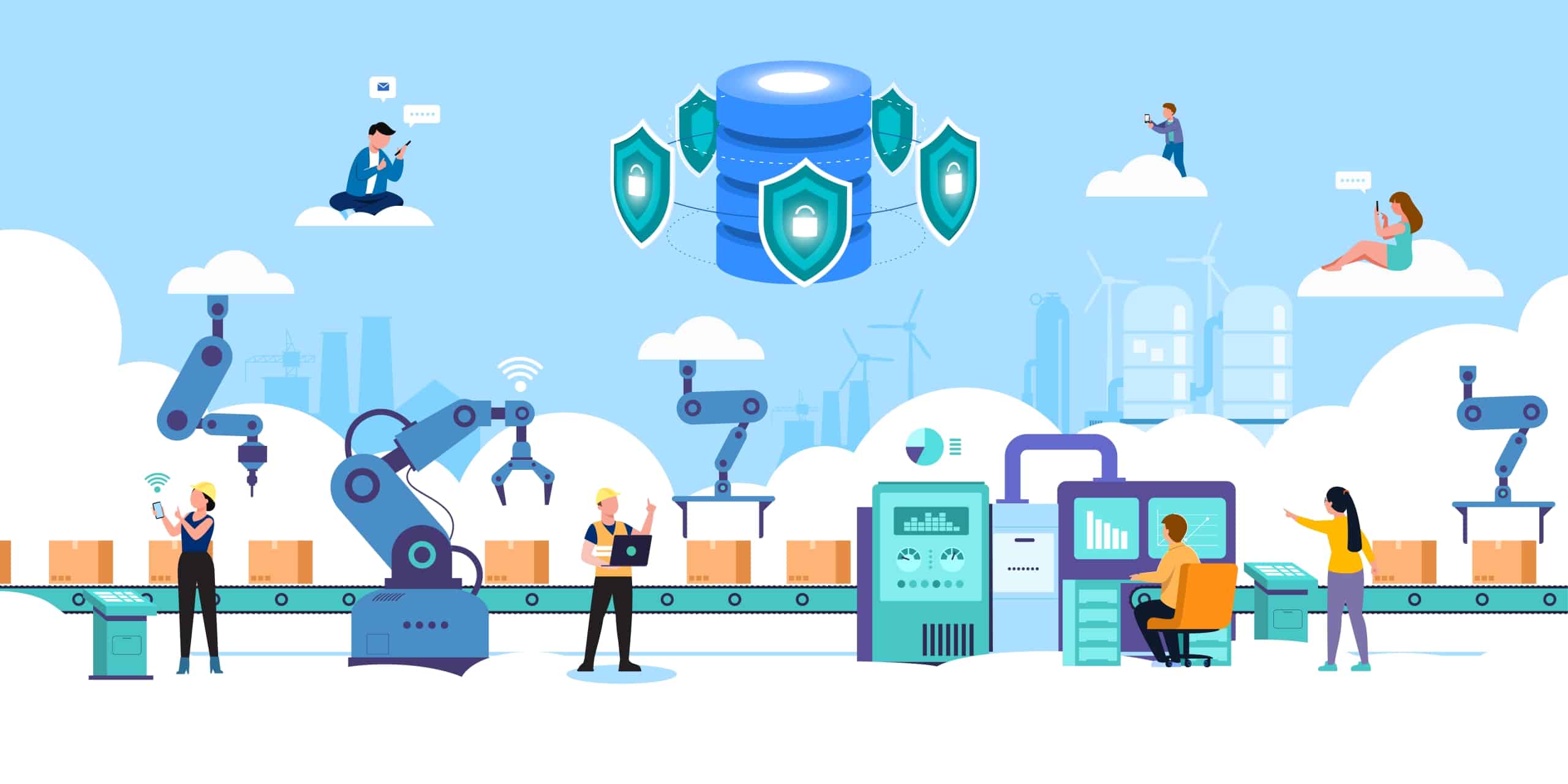Enhanced Production Efficiency
Improved production efficiency in AI-driven manufacturing for wet wipes includes many essential elements that work together to make processes more efficient, minimize waste, and boost output.
Optimizing Processes in Real-time
Machine learning algorithms are proficient in analyzing large datasets instantaneously. Algorithms in wet wipes manufacturing can consistently oversee and modify production variables including machine speed, temperature settings, and moisture levels. This continuous adaptation guarantees that the production process consistently operates efficiently, minimizing material waste and energy consumption.
Anticipatory Maintenance
AI in manufacturing plays a crucial role in forecasting wet wipes machine problems in advance. AI may predict wet wipes machine failures by assessing previous data on machine performance and wear-and-tear, allowing for proactive maintenance scheduling. This proactive strategy helps avoid unforeseen periods of inactivity, which may result in significant expenses related to repairs and decreased productivity.
Automated Robotics
AI-driven automation is essential for improving industrial efficiency. Robotic systems excel in performing repetitive operations like cutting, folding, and packaging wet wipes with unparalleled accuracy and speed compared to human labor. The robots can adjust to various sizes and kinds of wet wipe goods automatically, enabling quicker transitions between product lines and minimizing downtime.
Unified Systems
AI enables the integration of different systems throughout the manufacturing facility, including supply chain management, inventory, and quality control. An integrated system may automatically modify production quantities according to inventory levels or real-time demand estimates. This high degree of integration optimizes the manufacturing process by guaranteeing optimal resource use and alignment with market demand.
Improved Quality Assurance
AI plays a significant role in enhancing quality control, which in turn impacts manufacturing efficiency. AI-powered visual inspection systems may detect flaws or irregularities in wet wipes while they are being manufactured. Identifying these problems at an early stage helps avoid the negative consequences of low quality, such as customer returns or extra rework, which may disrupt the smooth manufacturing process.
Improved production efficiency in the wet wipes manufacturing sector allows wet wipes manufacturers to increase output while using fewer resources, due to the accuracy, predictive capacities, and integration features offered by AI and machine learning technology. This enhances commercial results and promotes environmental sustainability via waste reduction and resource optimization.
Quality Control at Its Finest
Quality control is essential in manufacturing, particularly in sectors such as wet wipes manufacturing, where goods come into close touch with customers. AI and machine learning have greatly improved the standards and efficiency of quality control operations. AI technology is improving quality control in the wet wipes manufacturing sector.
Cutting-edge Vision Systems
AI-driven vision systems are now leading the way in quality control for wet wipes production. The systems use high-resolution cameras and image-processing algorithms to examine each object produced. They can identify even the most subtle irregularities and imperfections, such as uneven cuts, insufficient moisture, impurities, or incorrect packing. Real-time inspection guarantees that only items meeting rigorous quality criteria are sent to consumers, thereby minimizing the chances of recalls or customer discontent.
Consistency and Precision
Ensuring uniformity in extensive manufacturing is difficult but essential for brand image and customer confidence. Machine learning models are trained on extensive datasets to grasp the intricacies of defining a high-quality product. They may use this knowledge throughout the manufacturing process to guarantee uniformity in size, thickness, moisture content, and texture for every batch of wet wipes. Attaining this degree of accuracy is challenging with just human examination.
Automated Feedback Loops
AI systems used in quality control focus on both detection and enhancement. Defects are promptly incorporated back into the manufacturing system upon identification. This automatic feedback loop enables rapid modifications to be performed, such as calibrating gear, changing raw materials, or adjusting production settings. This continuous optimization approach aims to consistently improve product quality and operational efficiency.
Forecasting Using Data Analysis
Apart from instant quality monitoring, AI also offers predictive insights to anticipate quality problems before they occur. Machine learning algorithms can forecast future failures or areas of concern by examining data trends and patterns from the manufacturing process. This may include anticipating the deterioration of cutting equipment resulting in uneven cuts or projecting variations in moisture levels in wipes caused by seasonal changes in humidity.
Adherence and Trackability
Adhering to regulatory requirements is crucial in manufacturing wet wipes, since they are often required to fulfill precise health and safety criteria. AI systems assist with compliance by monitoring production parameters and ensuring they remain within specified limits. Moreover, machine learning aids in traceability by allowing firms to track any quality concerns in completed goods back to particular batches and manufacturing settings. This expertise is essential for effectively handling any recalls and for carrying out remedial measures in the wet wipes manufacturing process.
AI-powered quality control signifies a transition to more dependable, uniform, and effective manufacturing processes in the wet wipes sector. It assists wet wipes manufacturers in maintaining high standards and helps them reach greater levels of customer satisfaction and operational excellence.
Inventory and Supply Chain Optimization
AI and machine learning are revolutionizing inventory and supply chain management in the wet wipes manufacturing sector, improving efficiency from sourcing raw materials to delivering the final product. This technology integration guarantees supply chains that are more efficient, cost-effective, and responsive.
Forecasting Demand
AI algorithms are proficient in analyzing past sales data, market trends, customer behavior, and external variables such as weather conditions or economic changes to predict demand with precision. Wet wipes manufacturers may use this predictive capability to forecast market demands and modify production schedules to prevent overproduction or stockouts. Forecasting aids in optimizing inventory levels and arranging the acquisition of raw materials such as fibers, textiles, and packaging components.
Automated Inventory Management
Machine learning systems may automate inventory management, decreasing human error and enhancing productivity. The systems monitor inventory levels, update records instantly, and provide alarms when supplies of certain components drop below set criteria. This automation guarantees continuous production by preventing interruptions caused by input shortages. AI can recommend the best reorder amounts and timings using predictive analytics to keep a minimal inventory that lowers holding costs while ensuring product availability.
Coordinating the Supply Chain
AI improves coordination across the whole supply chain by integrating information and procedures from suppliers, manufacturers, distributors, and retailers. Effective coordination is essential for managing the intricate logistics of wet wipes production, which might include engaging several international suppliers for diverse raw materials and components. AI systems provide a single platform for all stakeholders to oversee and control the movement of commodities and information, enhancing transparency and cooperation. This integration facilitates the mitigation of interruptions and the synchronization of production with market demand.
Optimizing Routes and Deliveries
AI-powered systems enhance logistics and distribution routes by taking into account variables like traffic flow, delivery timeframes, and fuel conservation. Wet wipes manufacturers must offer items more quickly and at a reduced cost. Sophisticated algorithms can adapt routes in real-time to address changes or delays, thereby reducing disruptions and guaranteeing timely delivery of items to customers and businesses.
Sustainable Practices
Apart from improving operational efficiency, AI also promotes sustainability throughout the supply chain. AI minimizes the environmental impact of producing and delivering wet wipes by optimizing routes and inventory levels. It allows for enhanced strategic planning of transportation and distribution, resulting in a reduction of trips while increasing efficiency. By keeping inventory levels at an appropriate level, waste related to overproduction or expired items is minimized.
Improved Supplier Relationships
AI enhances supplier relationships by facilitating enhanced data exchange and performance analytics. Machine learning models may evaluate supplier dependability and efficiency, aiding wet wipes manufacturers in selecting partners who align with their criteria for quality, timeliness, and expenses. This data-centric method of supplier management enhances supply chain efficiency and motivates suppliers to maintain high standards.
AI and machine learning greatly improve inventory and supply chain management in the wet wipes business, resulting in more flexible, efficient, and sustainable operations. Optimizing is essential to remain competitive in a market that requires great responsiveness and dependability.
Sustainability Through Innovation
Industries globally, including wet wipes production, are increasingly prioritizing sustainability. Wet wipes manufacturers are using AI and machine learning to promote sustainability and innovation due to stricter environmental restrictions and changing customer preferences towards eco-friendly goods. AI is enhancing the sustainability of wet wipes production.
Maximizing Resource Efficiency
Artificial intelligence may greatly improve resource efficiency in production by decreasing waste and energy use. Machine learning algorithms can optimize the use of water, energy, and raw materials required for manufacturing by analyzing real-time data and using predictive analytics. This not only minimizes environmental effects but also lowers operating expenses.
Integration of Environmentally Friendly Materials
Artificial intelligence assists in the exploration and creation of eco-friendly materials for wet wipes, including biodegradable and compostable fibers. AI can analyze data on material qualities and performance in diverse environmental circumstances to discover sustainable material combinations without compromising product quality and functionality. This is essential as the industry transitions from plastic-based products that harm the environment.
Minimization of Waste
Machine learning is crucial in minimizing waste in the production process. AI reduces unnecessary waste produced during cutting and packing processes by enhancing the precision of machines. AI systems can forecast and oversee the lifespan of items and materials to minimize the waste produced at the end of their lives. AI can predict when resources will become outdated and provide methods to reuse them, therefore promoting a circular economy.
Energy Management
Artificial intelligence also enhances energy efficiency in manufacturing facilities. AI-driven smart energy systems can oversee and regulate energy use in different processes to optimize efficiency. These systems may adjust energy use to off-peak hours and automatically power down wet wipes machines while idle. These measures aid in decreasing the carbon impact and adhering to international energy consumption regulations.
Supply Chain Sustainability
AI improves supply chain sustainability via logistics optimization, minimizing transportation distances, and adopting eco-friendly routes and modes. Furthermore, AI may assist wet wipes manufacturers in choosing suppliers who follow sustainable standards and conducting frequent audits using data-driven methods. This guarantees that every part of the supply chain plays a role in achieving the manufacturing process’s sustainability objectives.
Adherence and Documentation
AI solutions help wet wipes manufacturers comply with environmental regulations and report on their sustainability efforts. AI technologies streamline the gathering and analysis of data on environmental effects, such as emissions and waste levels, facilitating organizations’ accurate reporting on sustainability efforts and progress. Transparency is essential for meeting regulations and improving the company’s image with environmentally conscious customers and investors.
AI and machine learning advancements are streamlining the production process and guiding the wet wipes manufacturing business towards sustainability and ecologically friendly practices. This transition is crucial for the industry’s long-term sustainability and to fulfill the increasing need for high-quality and sustainable goods.
The Road Ahead
The future of wet wipes production will be transformed by the integration of AI and machine learning, leading to improved capacities, increased sustainability, and more meaningful customer interaction. This is a potential forecast for the future of this industry:
Advanced Automation and Robotics
Advancements in AI and robotics technologies will further expand the capabilities of manufacturing. Anticipate the development of increasingly advanced robots with improved sensors and intelligent algorithms, able to perform complex tasks with increased accuracy and efficiency. These innovations will help minimize human mistakes, lower labor costs, and boost manufacturing speeds, ultimately improving productivity and safety.
Improved Tailoring
With the changing customer tastes towards personalized goods, AI can help wet wipes manufacturers provide a wider range of customizable alternatives in wet wipes, including different sizes, smells, and skin care additives, in a scalable and effective manner. Machine learning algorithms can assess consumer data to forecast trends and preferences, enabling wet wipes manufacturers to adjust their product offerings to cater to individual customers’ prompt needs without interrupting the overall production flow.
Enhanced Predictive Maintenance
Advancements in IoT and AI will enhance the accuracy and timeliness of predictive maintenance. Manufacturing equipment will include sensors that gather extensive data, which AI systems will use to anticipate equipment problems more accurately before they happen. This will save downtime and maintenance expenses, guaranteeing that manufacturing lines operate at peak efficiency consistently.
Enhanced Supply Chain Networks
AI-powered supply networks will become more intelligent and integrated. By integrating blockchain technology with AI, a high level of transparency and traceability may be achieved throughout the supply chain. The connection will enable real-time monitoring of commodities from acquisition to distribution, assuring ethical standards, minimizing deceit, and enhancing supply chain effectiveness.
Embracing Sustainability as a Fundamental Principle
Sustainability will increasingly be prioritized due to customer demand, governmental restrictions, and the industry’s true commitment to environmental care. Artificial intelligence will be essential in attaining sustainable objectives via efficient resource use, waste reduction, and the development of innovative, environmentally friendly products. Furthermore, AI can assist in creating goods and processes that are not only more environmentally friendly but also play a role in restoring the ecosystem.
Improved Consumer Engagement
Artificial intelligence will change the way firms engage with customers. By using AI-powered analytics and CRM systems, organizations may get profound insights into customer habits and preferences, enabling the implementation of more efficient and tailored marketing plans. Furthermore, AI may improve customer service by offering prompt and personalized replies to client questions and comments.
Regulatory Adaptation
Technology advancements will lead to changes in regulations. Wet wipes manufacturers must be flexible and knowledgeable about updates in rules regarding product safety, environmental effects, and data privacy. AI may help monitor regulatory changes, ensure compliance, shield producers from legal concerns, and preserve customer confidence.
Wet wipes manufacturing faces challenges, but with AI and machine learning, the industry is prepared to overcome these obstacles and move towards a future that is efficient, productive, and sustainable.






